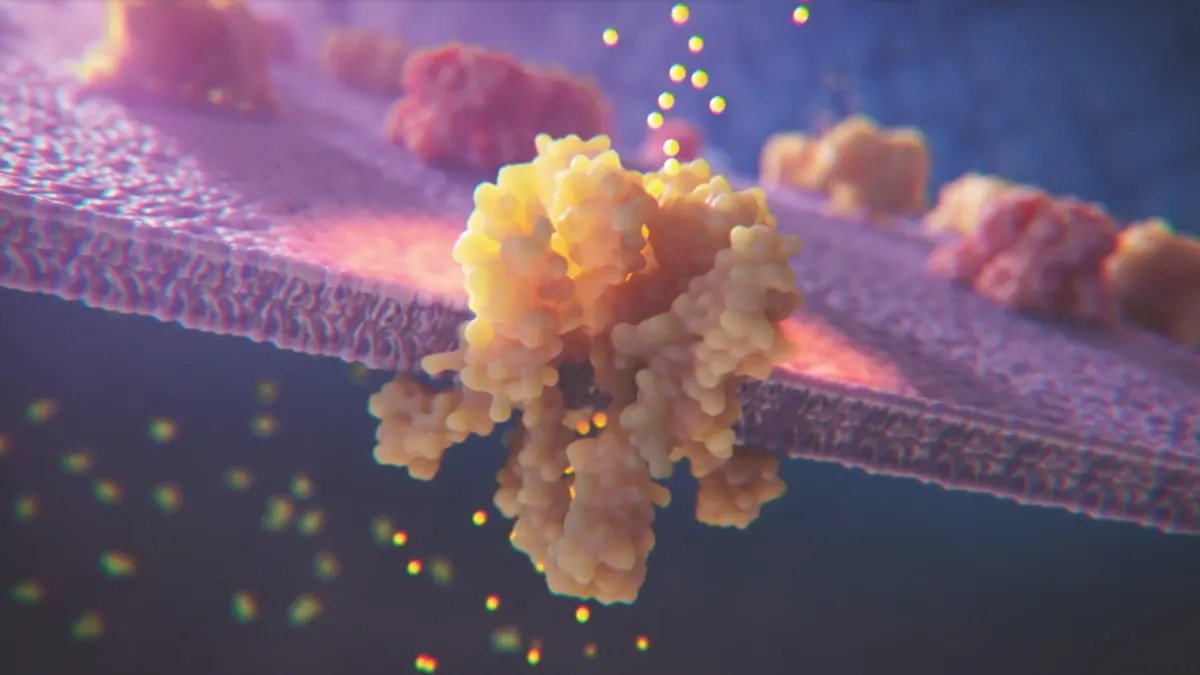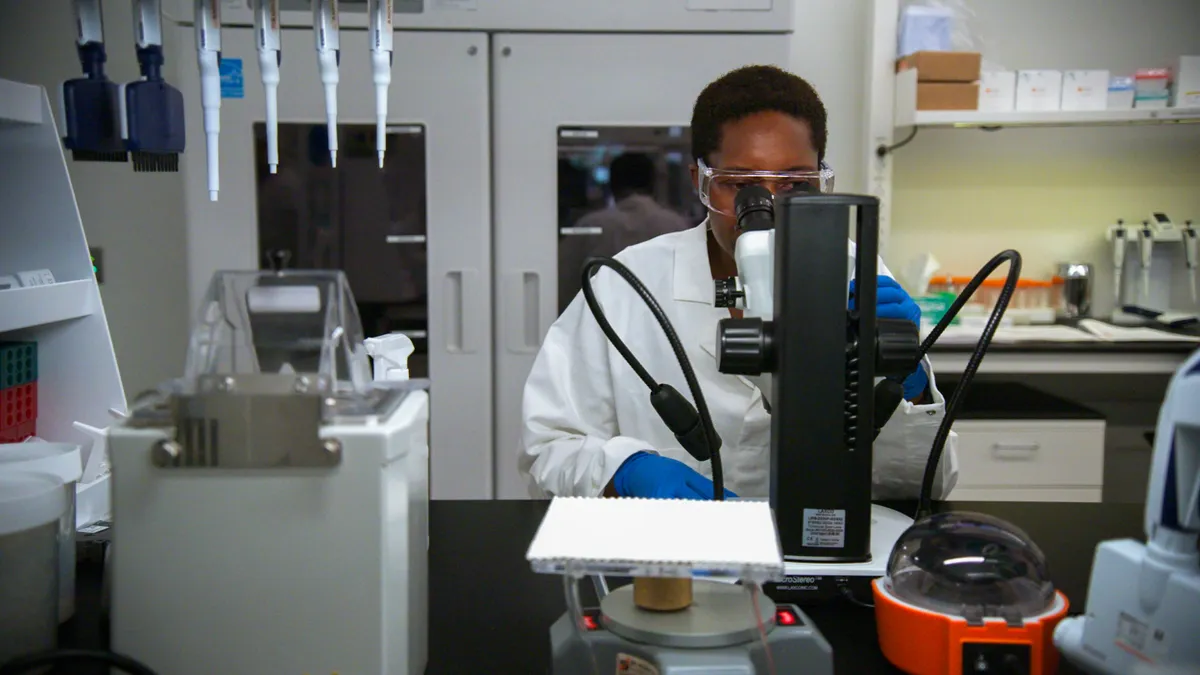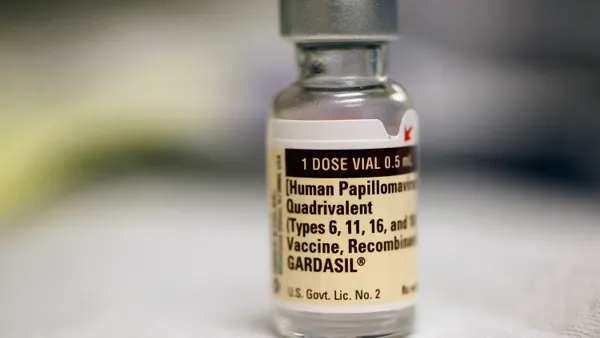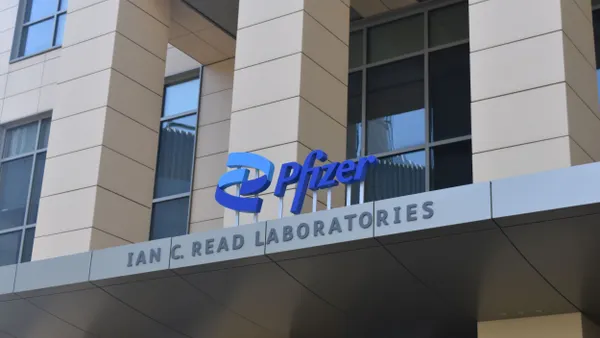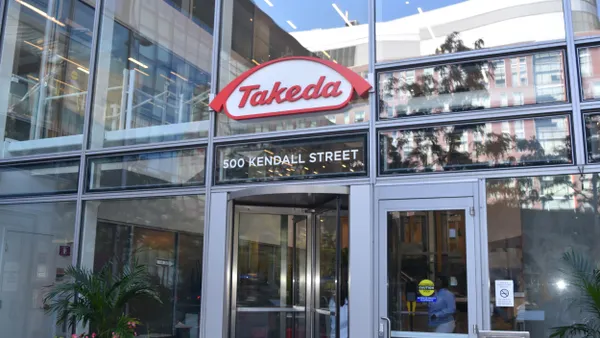Today, a brief rundown of news from GSK and Amgen, as well as updates from Roche, AbbVie, and Marinus Pharmaceuticals that you may have missed.
Amgen set a list price of $1,665 per shot for its biosimilar version of Regeneron’s Eylea, a 10% discount from the eye drug’s current wholesale cost, RBC analyst Brian Abrahams wrote in an Oct. 25 note to clients. On Tuesday, Amgen said it would launch its biosimilar, branded Pavblu, without a legal settlement with Regeneron following a court decision that lifted a temporary injunction on its launch. Such “at risk” launches are uncommon, and could result in steep penalties for Amgen if subsequent legal judgments side with Regeneron. The small discount means the market impact of Pavblu “may be more muted” than Amgen investors feared, Abrahams wrote. Further price erosion could occur when additional biosimilars launch. The FDA has approved four others. — Jonathan Gardner
GSK is making its largest investment in U.S. manufacturing, committing $800 million to expand a site in Marietta, Pennsylvania with new drugmaking facilities. One will handle production of “sterile liquid vaccines and medicines,” and should be ready by the end of 2028. Another will include a drug substance facility — set to start operations by the end of 2027 — as well as a “pilot plant” for making clinical trial medicines. — Ned Pagliarulo
Roche has inked a second research collaboration with gene therapy specialist Dyno Therapeutics. The companies originally linked up in 2020 and, similar to that deal, the one announced Thursday revolves around neurological diseases. Roche and Dyno think the latter's technology can be used to create better "viral vectors" — the microscopic tools that shuttle genetic medicines to a desired target. The new deal tasks Dyno with designing these improved vectors, which will then be applied to potential gene therapies for nervous system disorders. Roche will be responsible for testing the therapies and, if they make it to the market, selling them. Dyno is getting $50 million upfront, plus research payments. It's also eligible for royalties on resulting products, and could nab north of $1 billion more by hitting certain milestones. — Jacob Bell
Longtime partners AbbVie and Gideon Richter are working together on another brain-focused project. Through a sparsely detailed agreement announced Thursday, the companies hope to discover new targets that could be used to treat neuropsychiatric conditions. They plan to share the costs of the necessary research and development. Richter will receive $25 million upfront, and could take home more through milestone and royalty payments. AbbVie, meanwhile, will get worldwide rights to programs that advance to commercialization, except in “traditional markets” of Richter, such as Europe and Russia. — Jacob Bell
Marinus Pharmaceuticals will lay off staff, cut costs and consider “strategic alternatives,” after results from a Phase 3 study showed the company’s seizure drug ganaxolone did not meet the trial’s goal. On Thursday, Marinus said the data, while finding nominal reductions in seizure frequency that favored ganaxolone, were likely not enough to support an approval application. The study tested ganaxolone in people with epilepsy related to tuberous sclerosis complex; the drug is already cleared for use treating seizures in people with a condition called CDKL5 deficiency disorder. — Ned Pagliarulo




